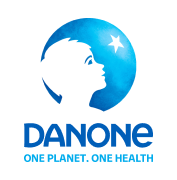Closing the Nutritional Care Gap in Cancer Treatment
With 20 million new diagnoses every year, cancer is estimated to affect about half of us during our lifetimes1, profoundly impacting patients and loved ones alike. Danone is committed to supporting patients and healthcare systems by driving better health outcomes through advanced research, pioneering medical nutrition, and educational services.
1 Global Cancer Observatory: Cancer Today, 2024; WHO International Agency for Research on Cancer: link

33million
ADULTS IN THE EU SUFFER FROM UNTREATED MALNUTRITION2
costing €170 billion annually
up to70%
OF PATIENTS WITH CANCER SUFFER FROM MALNUTRITION3
affecting treatment outcomes
only1 in 3
PATIENTS WITH CANCER WHO NEED MEDICAL NUTRITION, RECEIVE IT4
despite its clinically proven benefits
2 Medical Nutrition Industry International, 2020
3 Ryan AM, et al. Nutrition. 2019;67-68:110539
4 Planas et al. 2015 Support Care Cancer, 24, 429-435; Dijksterhuis et al. J Natl Compr Canc Netw 2021; 19(2):144-152; Blanchard et al.,Clin Nutr ESPEN. 2024;64P1012
- Malnutrition is highly prevalent among patients with cancer, affecting up to 70% of them, both as a result of the disease and the treatment.
- Medical nutrition is specifically designed to address the needs of malnourished patients. Yet, despite its proven clinical benefits, only a limited number of patients receive the right nutritional support, as medical nutrition is often overlooked in cancer policies.
- We join the WHO Europe’s call to governments to invest in policy change to tackle this issue and urge EU policymakers to revise Europe’s Beating Cancer Plan to fully acknowledge the role of nutrition and medical nutrition in cancer care.
Malnutrition in patients with cancer

Malnutrition is a condition where a person is not getting the right nutrition in the right amount to sustain their health.
It can affect up to 70% of patients with cancer, as a result of both the disease and the treatment. Patients and their caregivers regularly report eating difficulties (such as taste alterations or swallowing issues)6, leading to insufficient food intake and weight or muscle loss.
Malnutrition and weight loss can negatively impact patient outcomes and quality of life during cancer, causing reduced strength, more complications, treatment delays or interruptions, infections, and longer hospital stays.
Despite these detrimental effects, cancer-related malnutrition remains a severely under-recognized public health issue in the European Union, with an estimated annual cost of up to €17 billion8. This gap can be attributed to low awareness and education, insufficient screening, and lack of healthcare resources, as underlined by the WHO/Europe's 2023 and 2024 calls.
5 Ryan AM, et al. Nutrition. 2019;67-68:110539
6 Ipsos European Oncology Patient Survey, data on file, 2023; Ipsos European Informal Caregiver Survey, data on file, 2024
7 World Health Organization, 2024; Medical Nutrition Industry International, 2020; Ipsos European Oncology Patient Survey, data on file, 2023
8 Medical Nutrition Industry, 2020
The role of medical nutrition in cancer care
Medical nutrition can make a real difference in the lives of people battling cancer, supporting treatment outcomes and quality of life9. Designed and clinically proven to address the nutritional needs of malnourished patients, medical nutrition can supplement their regular food and drink intake to ensure patients meet their daily nutritional needs.
The use of medical nutrition as part of a nutritional support plan in cancer care is supported by clinical trials that have demonstrated benefits in weight gain, fewer complications and shorter length of hospital stay10. In fact, 85% of patients with cancer who used medical nutrition as part of the care report that it supported them throughout their treatment11.
However, despite its benefits, medical nutrition is underutilized, with only 1 in 3 cancer patients who need it receiving it12.
9 Burden et al. 2017 J Cachexia Sarcopenia Muscle, 8(3):437-486
10 Burden et al, 2017; Manasek et al, 2016; Kabata et al, 2014; Garvia et al, 2020; Baldwin et al, 2012; Cereda et al, 2018; Meng et al, 2021
11 Blanchard et al., Support Care Cancer. 2024;32(1):S434
12 Planas et al. 2015 Support Care Cancer, 24, 429-435; Dijksterhuis et al. J Natl Compr Canc Netw 2021; 19(2):144-152; Blanchard et al.,Clin Nutr ESPEN. 2024;64P1012

Our Call to Action: Close the nutritional care gap
Echoing the recent call from WHO/Europe, Danone urges EU policymakers to revise Europe’s Beating Cancer Plan to fully acknowledge the role of nutritional support, particularly, medical nutrition, as outlined in our EU Call to Action 2024-2029:
1. Screening and monitoring cancer patients for malnutrition to provide timely nutritional care
2. Implementing existing clinical nutrition guidelines for cancer patients
3. Providing equal access to and reimbursement for medical nutrition
4. Implementing multi-disciplinary oncology teams, including dietitians or registered nutritionists
5. Educating health professionals and patient advocates on the importance of nutritional care, and informing cancer patients about the importance of good nutritional status in cancer care
See more
- Headline 5
- Headline 5
- Headline 5





















































